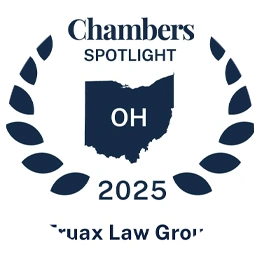Pay-if-paid: 100% Valid, But Not Absolute
Pay-if-paid clauses. They are the thorn in every subcontractor’s and supplier’s side. Even GC reps, while loving the risk protection these clauses provide, know they’re not fair.
And they only really exist in the construction industry. Certainly your credit card company, your mechanic, or your butcher would never agree to be paid only after you get paid from your employer or anyone else. (I realize not many folks have a butcher anymore, but they should…) But the reality is the Ohio Supreme Court has blessed these provisions as a product of Ohio’s “freedom to contract”, and we are stuck with them.
But there is some good news. Pay-if-paid clauses (not to be confused with pay-WHEN-paid clauses, which are very different and can be the subject of another blog post) typically provide that “the Contractor’s receipt of payment from the Owner for Subcontractor’s Work is an express and absolute condition precedent to Contractor’s obligation to pay Subcontractor and Subcontractor hereby assumes any and all risk of nonpayment of those amounts by the Owner.”
Not exactly.

For example, a few years ago, the U.S. District Court for the Eastern District of Pennsylvania refused to enforce a pay-if-paid clause after the general contractor withheld $200,000 from its masonry subcontractor more than two years after the job should have been completed. The owner had withheld the GC’s retainage because of claims that it delayed the project, but the contractor continued to withhold payment from its subs, including the masonry sub. The court relied on the prevention doctrine, also known as “prevention of performance”, in holding that the GC could not rely on its pay-if-paid defense when its own failures at the project caused the owner to withhold payment, effectively preventing the condition from being fulfilled. In other words, a general contractor can’t benefit from a pay-if-paid clause when the very reason an owner fails to pay for the subcontractor’s work is the general contractor’s failures or faults. Ohio courts have not yet formally adopted this exception to pay-if-paid cases, but they have adopted the prevention doctrine in other contexts. And I’m confident that if and when the time comes, they’ll rule the same way.
So what’s the takeaway for subcontractors and suppliers? Operate as though this is the law, and negotiate this exception (at a minimum) into the payment clauses. Limit the pay-if-paid clause in situations where the owner’s nonpayment is the fault of the general contractor or its other subs. If the contractor’s representative won’t agree to that simple concept, then they’re probably not someone you want to do business with anyway. But the only way subcontractors and suppliers can start to gain some leverage on payment is to take control of their own destiny.









